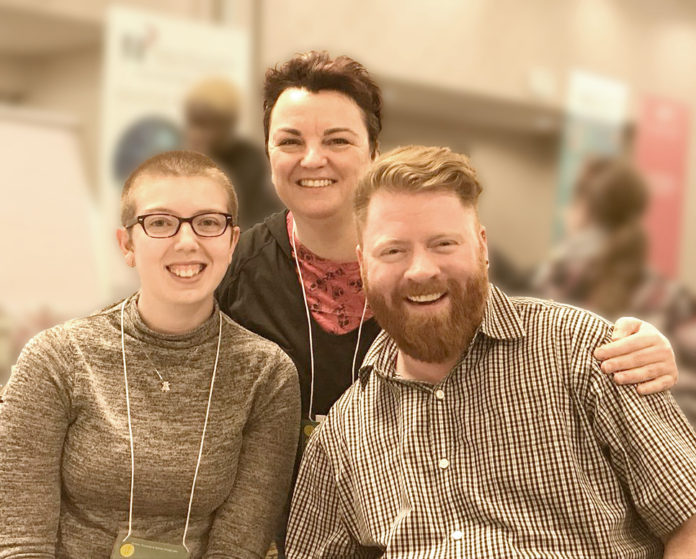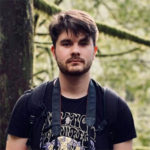Dr. Evan Taylor (they/them) is an assistant professor of social work and human services at UFV. Their research focuses on gender, sexuality, and marginalized groups. In 2020, with the help of Meghan McInnis, Amanda Bolderston, and Mary Morgan, they launched a new initiative called “Queering Cancer,” which aims to provide resources and help to those on the LGBTQ+ spectrum living with cancer. A couple years after the initial launch, the program is now moving towards a more education-based approach. They provide training materials to schools and health care providers, in order to raise awareness of how the queer community is doubly impacted by cancer.
Queering Cancer was launched in 2020 and was aimed at providing knowledge and resources to LGBTQ+ people living with cancer, correct?
Yeah. The website launched live Oct. 27, 2020. However we actually started planning the project in 2018, when we first connected. The Canadian Institute for Health and Research had a call for grant proposals. Each of us responded individually and we met via that program, where we got placed together in what they call a “design jam.” We were all looking at different aspects of how queer identities were being impacted, and we all decided to merge our ideas together into one larger project, which became Queering Cancer.
Can you shed more light on how LGBTQ+ people are further impacted by cancer within the medical field?
There’s a doubling up of stigma that happens. People who are queer and trans are already having difficulty in healthcare, trying to access care, and being treated with basic respect. There’s that, but then in cancer care there’s the trajectory of treatment. It’s quite standardized for everybody, and you go from one place to another place to another place, and you’re kind of bounced around the system. It places this extra burden on gender and sexual minority patients to constantly out themselves to their practitioners. It might be really important to how they experienced treatment. For instance, a trans man who is being treated for breast cancer treatment is going to often find himself in a women’s ward. He’s going to be sitting in a women’s waiting room. How is that comfortable for that patient?
You’ve stated that Queering Cancer is now focusing its attention on curating educational resources for medical professionals to work more competently with queer folks accessing care. What will that end up looking like?
What I would love to do a few years down the road is develop an accredited continuing education program for professionals entering the medical field, social work, counseling, etc. Basically an additional or professional development credit; that would be my long-term ideal. Right now, we’re in the place of trying to develop training modules and content for current professionals — helping those in the community right now.
One last thing I wanted to ask you: will there be any opportunities for students at UFV to get involved with Queering Cancer?
That’s an interesting question. What I can tell you is that there will be a work study position coming up in winter 2023. What we’re hoping to do at that point is conduct some interviews with educators, providers, and patients and start to look at establishing an evidence-based curriculum. The other thing that I would say, particularly for students who are involved in health fields, is look critically into how gender and sexual marginality really impact people’s experiences of health and their health risks. I also think an important piece is to recognize that cancer itself is something that affects all of us. Folks that are a part of the gender and sexually minoritized communities are going to be experiencing additional impacts. Ask yourself: what can you do to be an ally to those people in your life? For folks going through treatments, it can be really taxing and draining. It’s always good to connect with people in your life and just ask them: what do you need? Sometimes something as simple as picking up the mail or bringing over a casserole can be super helpful for folks.
This interview has been edited for length and clarity
Kellyn Kavanagh (they/he) is a local writer, photographer, and musician. They first started writing what they now know to be flash fiction stories in the third grade when they learned how to make little books with a couple sheets of printer paper and a stapler. Their work typically focuses on non-ficiton journalism, short horror fiction, and very depressing poetry.



